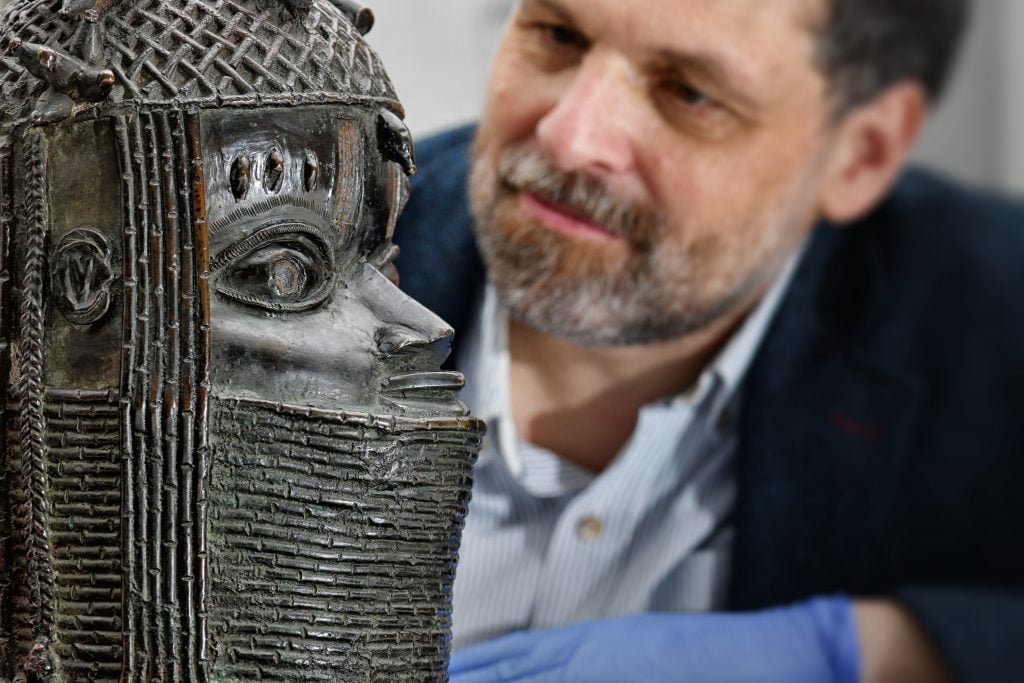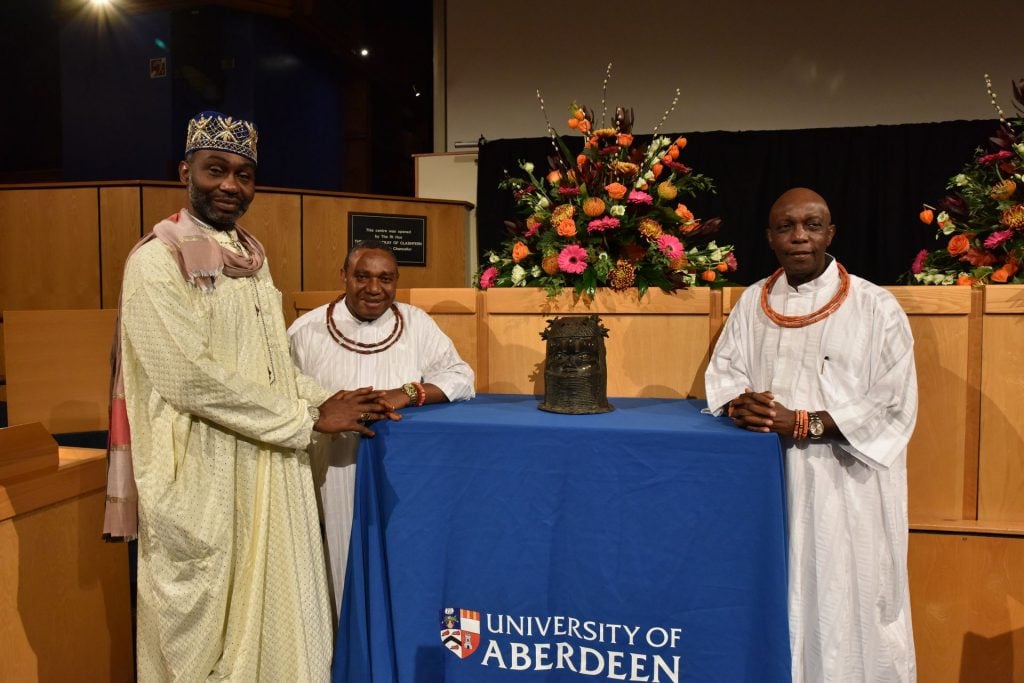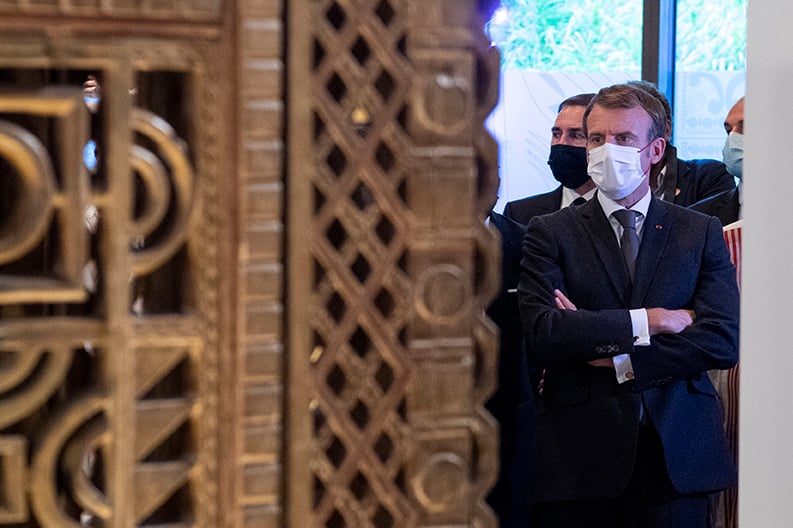Politics
After Years of Debate, Two Universities Have Become the First U.K. Institutions to Restitute Benin Bronzes
Cambridge and Aberdeen universities will return the treasured bronzes.

Cambridge and Aberdeen universities will return the treasured bronzes.

Vivienne Chow

Two universities became the first institutions in the U.K. to restitute Benin bronzes to Nigeria this week. Jesus College at the University of Cambridge and the University of Aberdeen each staged handover ceremonies of Benin artifacts on Wednesday and Thursday, respectively.
An entourage of Nigerian signatories traveled to the U.K. to receive the treasures during ceremonies, including Abba Isa Tijani, director of the National Commission for Museums and Monuments, and Prince Aghatise Erediauwa, the brother of the crowned Oba of Benin, Ewuare II.
The Jesus College Benin bronze that has finally found its way home is a bronze cockerel, known as Okukor. The sculpture was donated to the Cambridge college in 1905 by a student’s father. The college announced in 2019 that it would return the artifact that was looted from the royal court of Benin, which is a part of Nigeria today, by a British punitive expedition to Benin in 1897.
Sonita Alleyne, the master of Jesus College, said the restitution of the Benin bronze “is the right thing to do.”
“We are proud to be the first institution to simply act, to just do it. This Benin bronze, this Okukor, does not belong to us,” she said.

Prince Isa Bayero, a Prince of the Kano Emirates, Chief Charles Uwensuyi-Edosomwan, the Obasuyi of Benin and Prince Aghatise Erediauwa, the younger brother of the current Benin monarch. Courtesy of the University of Aberdeen.
The Benin bronze that was housed at the University of Aberdeen is a sculpture depicting the head of an Oba, or the king. It was among the thousands of cultural treasures stolen by the British colonial troops in 1897 during the destruction of Benin City, where the royal palace was burnt down. The university acquired the sculpture at an auction in 1957, and it was later concluded that the piece was “acquired in immoral circumstances,” the university said. The university announced in March this year that it would return the work.
“Over the last 40 years, the Benin Bronzes have become important symbols of injustice,” George Boyne, principal and vice chancellor of the University of Aberdeen, said in a statement. “It would not have been right to have retained an item of such great cultural significance that was acquired in such reprehensible circumstances.”
“Regardless of the resistance in some quarters, the return of stolen art is the right thing to do,” said Ewuare II in a statement, who also thanked the University of Aberdeen “for this noble act of returning our bronze work.”
“We hope that other institutions worldwide will see the injustice when they insist on holding on to items which in fact should be a reminder to them of the great injustice that was inflicted on a people so far away and so long ago,” Ewuare II added.

French President Emmanuel Macron inspects the Benin bronzes at Quai Branly museum in Paris. © musée du quai Branly – Jacques Chirac, photo Thibaut Chapotot.
Institutions in continental Europe have been working on returning the Benin bronzes. Germany will restitute those from its public collections next year. This past week, French President Emmanuel Macron presided over a handover ceremony while visiting the Benin treasures that are on show at the Quai Branly museum in Paris one last time before they make their way home. The 26 pieces were looted in 1892 by French troops and will be returned to the Republic of Benin after the show concludes on October 31.
“The restitution is more than a restitution. It is an entire program of cooperation,” Macron said at the ceremony on Wednesday.